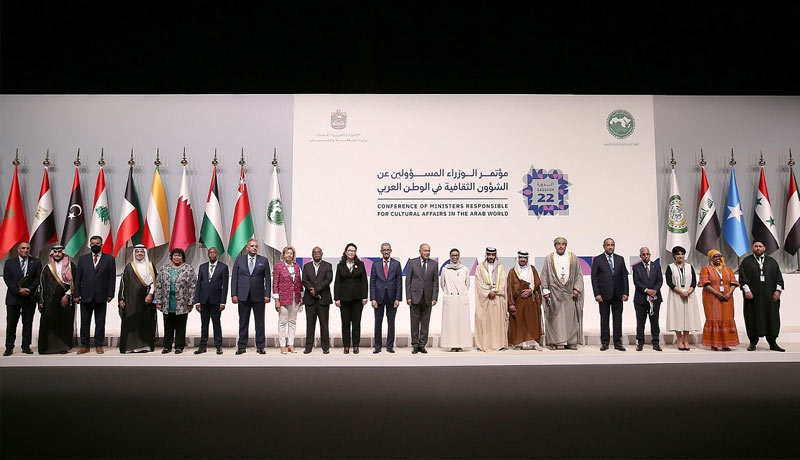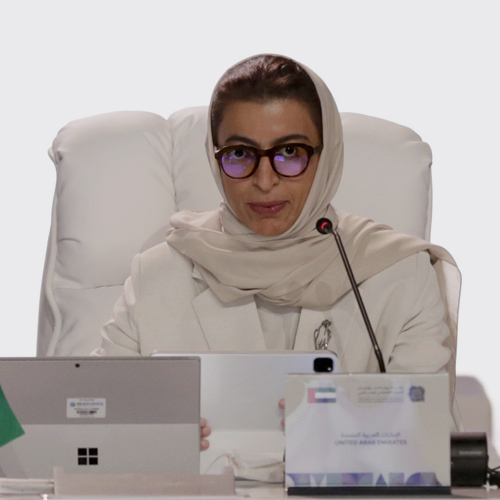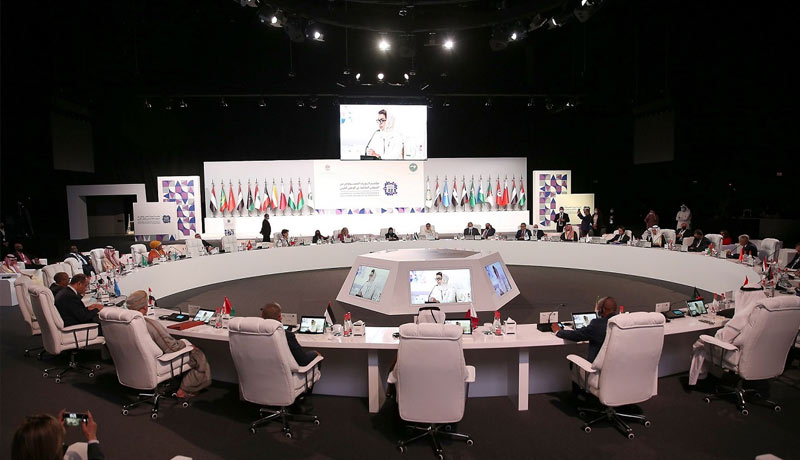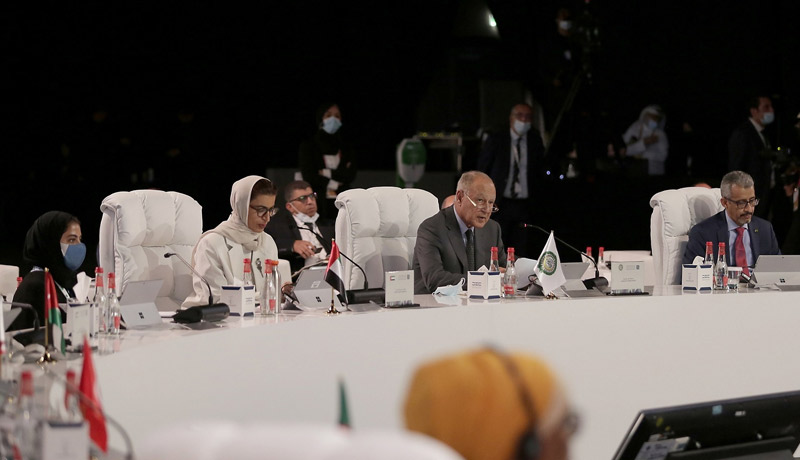
The 22nd Conference of Arab Culture Ministers, hosted by the UAE Ministry of Culture and Youth in collaboration with the Arab Educational, Cultural, and Scientific Organization (ALECSO), began today with the attendance of 18 ministers in charge of cultural affairs from across the Arab world as well as a number of notable figures.

Her Excellency Noura bint Mohammed Al Kaabi, Minister of Culture and Youth and Chair of the 22nd session, said: “The 22nd session of the conference is important as we look into the responsibilities to adopt the strategies to fulfill our cultural agenda. The challenges of the past two years due to the pandemic, showed the importance of the cultural and creative industries in achieving sustainable development goals.
Her Excellency praised the role of ALECSO in coordinating joint Arab cultural work and stressed the importance of modernising Arab culture. “The UAE and some Arab countries have proposed future files to take our cultural agenda forward, and we hope to work hand in hand with other Arab countries as well as countries from around the world to promote dialogue and cultural cooperation.”
Her Excellency also stated that the UAE has proposed to review the results of the World Conference on Creative Economy (WCCE) ahead of this conference, to use the outcomes to identifyareas of joint Arab efforts in the cultural and creative industries. The sector is important for its contribution to the economy as well as creating job opportunities for the youth.”
Her Excellency noted that the UAE has prepared a scientific report on the status and future of the Arabic language, and suggested that it review the results of discussions and studies on the language’s preservation and promotion in order to develop joint initiatives to raise awareness of the language on a global scale.

“Arab youth are the future, and cultural institutions aim to serve this group and provide them with opportunities to achieve their goals and aspirations. For the success of any Arab cultural project, the UAE has proposed a meeting between ministers and Arab youth along with ALECSO,to forge communication between decision-makers in the cultural sector at the Arab level.”
His Excellency Ahmed Aboul Gheit, Secretary General of the Arab League, praised the decision to hold the session in conjunction with the Arabic Language Summit, which was organised by the UAE Ministry of Culture and Youth. These events closely link culture and language, and are very relevant in today’s times especially in light of the difficult circumstances that the Arab world has been facing in the last decade, which have had an impact on all fields, including culture and thought.”
His speech focused on three main points. He stressed the importance of religious reform and the understanding of heritage. “Reform has been a core theme on the Arab agenda since the time of its first renaissance, but the reform project has stalled, was overshadowed by other intellectual, cultural and political projects, such as the national liberation project, as well as the project of Arabism and unity.”
The second topic raised by His Excellency was the concept of the national state, which has been at the forefront of the intellectual and political agenda for the past decade. The third topic was on Arab culture’s openness and communication with other cultures in order to stay up with the current advancements in global thought by increasing scientific production, speeding up translation, and promoting Arab digital material.

Her Excellency Dr. Inas Abdel Dayem, Minister of Culture of Egypt and Chair of the 21stSessionof the Conference of Arab Culture Ministers, reviewed the results of the work of the previous sessions of the conference as the twentieth session issued the ‘Tunisia Declaration against Terrorism and for Tolerance and Solidarity among Peoples, Cultures and Religions’, and the twenty-first session issued the Cairo Statement on the ‘Arab cultural project facing the current challenges.’ The conference resulted in several decisions and recommendations that ALECSO shared with the member states.”
His Excellency Dr. Mohamed OuldAmar, Director General of ALECSO,said: “The World today relies heavily on the Internet, to ensure people-to-people communication, and to provide services in various fields including education, health, social, cultural and economic. We have achieved some of the goals through distance education and the implementation of virtual visits to archaeological sites, museums and through awareness programs. However, the biggest challenge in achieving these goals are technological, cognitive and material gaps between Arab states. We should address this as a priority and seek collective solutions that ensure social, economic and cultural sustainability for all.”
His Excellency explained that “The Arab Culture Ministers Conference presented the comprehensive plan for Arab culture to study and review its modernisation which was decided in the previous session. It was accompanied by a generous donation by the United Arab Emirates, when the Arab countries approved this project. We have adopted the outcomes of the past sessions of the conference with great success and will continue to do so in the future.”
The Conference of Arab Culture Ministers’ 22nd session will bring together representatives from governments, policymakers, and international organisations to discuss a variety of issues, the most important of which is the development of a five-year working map of joint Arab files for intangible heritage registration with UNESCO. It will also address the Arab Culture and Modernization Comprehensive Plan, which aims to promote cultural collaboration between Arab countries and other countries throughout the world. The conference aims to bring together Arab initiatives to enhance the cultural and creative industrial ecosystem, as well as discuss the ambassador for Arab culture’s agenda.